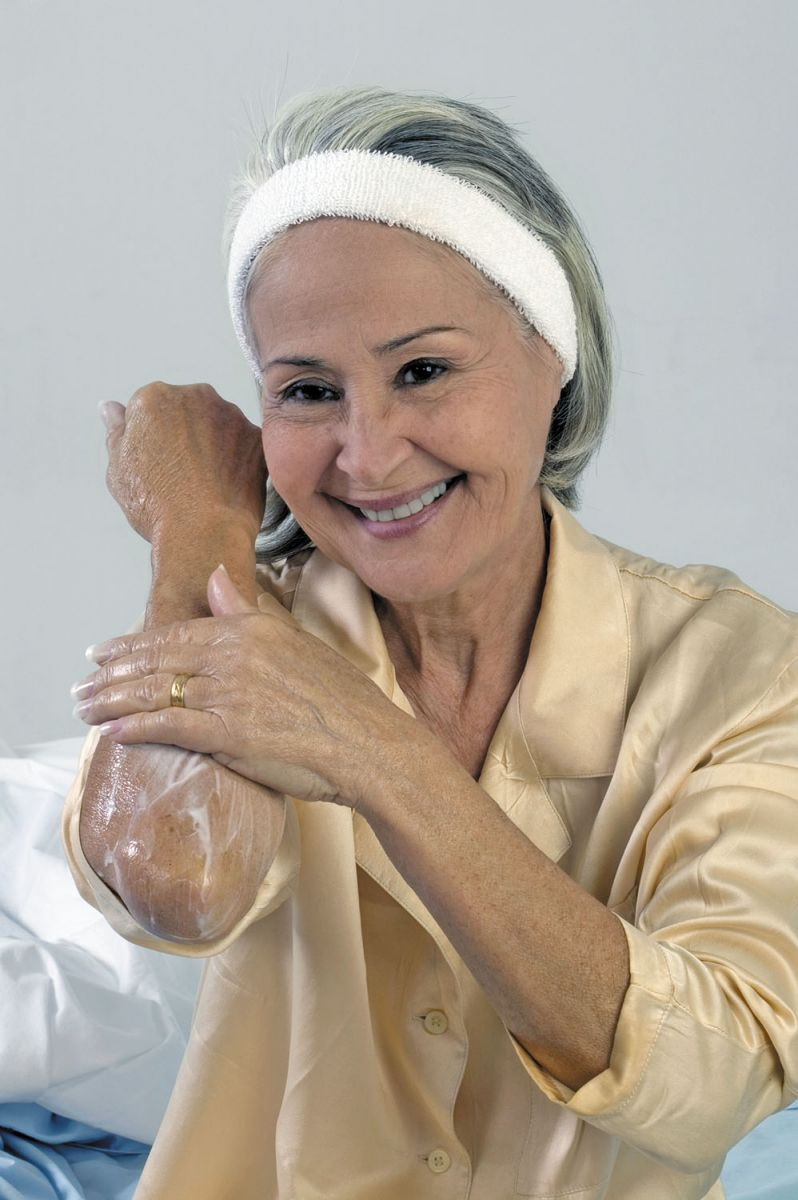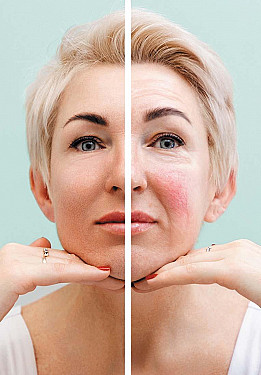Ward off winter skin woes
Try these simple strategies to keep dry, cracking skin at bay during the cold weather.
 Chapped, dry, cracked, and peeling... winter can be hard on your skin. What with the cold air and the lack of humidity, your skin spends the winter months fighting to retain moisture, not to mention fending off other insults from cold-weather staples like scratchy wool clothes and crackling wood fires.
Chapped, dry, cracked, and peeling... winter can be hard on your skin. What with the cold air and the lack of humidity, your skin spends the winter months fighting to retain moisture, not to mention fending off other insults from cold-weather staples like scratchy wool clothes and crackling wood fires.
How can your skin survive the season? We asked Dr. Barbara Gilchrest, senior lecturer on dermatology at Harvard Medical School, to weigh in with her best tips to help you protect your skin from winter dryness.
1. What's the most common winter skin problem that women experience?
For most women, it's dry skin and itching, says Dr. Gilchrest. You can blame cold air and low humidity for stripping the water away from the surface of your skin. Instead of lying flat and smooth and then shedding from the surface inconspicuously, dead skin cells from the many layers that make up our protective skin barrier form small but visible partially attached clumps that make your skin feel dry and rough. "Older women tend to have very dry and itchy lower legs. Sometimes this can even interfere with sleep, so it's more than just cosmetic," says Dr. Gilchrest.
Eczema craquelé is another problem to watch for in the winter months. It's essentially an extreme manifestation of dry skin, again usually occurring on the lower legs. With this condition, the dryness actually causes cracks in the top layer of skin, known as the stratum corneum. These cracks allow blood to rise up beneath the skin, appearing as squiggly red lines, which give the skin a mottled appearance. Some women with this condition experience itching and stinging.
Also keep in mind that your face and limbs aren't the only parts of your body that can experience dry skin. Your scalp might also dry out during the winter months, causing dandruff, which is luckily easy to address by using a dandruff shampoo.
2. How can you prevent dry skin in the winter months?
Combating the problem starts with keeping your home environment moist. Use a humidifier if you can. But the most effective strategy is to use skin moisturizers, which slow water loss and also physically smooth the skin, making it feel less rough, says Dr. Gilchrest.
3. Do you have any tips for choosing a moisturizer?
Choose the heaviest moisturizer that's comfortable to wear, and use more on your lower legs and hands, which are most prone to dryness. After a bath or a shower, pat the skin dry and immediately apply a moisturizer. Reapply as needed throughout the day, says Dr. Gilchrest.
4. How about dry lips? Any suggestions to treat and prevent chapping?
Lip balms, which you can buy at any drugstore or supermarket, work well to treat and prevent dryness of the lips in the winter months.
5. Is it possible for your lips to become dependent on balms and dry out more quickly when you don't wear them?
While you may have heard this in the past, your skin doesn't get dependent on these products. "I've never seen any data that support that," says Dr. Gilchrest. However, if you are used to the feel of these products on your lips and suddenly go without, your lips may feel particularly dry as a result.
6. Do expensive, brand-name moisturizers work better than lower-cost options?
"It doesn't have to be expensive to work," says Dr. Gilchrest. "To my knowledge, while there are some extremely expensive moisturizers, there are none that are proven to be magically better." But if you can, she says, look for moisturizers with alpha hydroxy acids, also called fruit acids, such as lactic acid or glycol acid. Creams with alpha hydroxy acids tend to hold moisture in the skin longer than other moisturizers. You can get them at fairly high concentrations, she says. Use small amounts until your skin gets used to them, so you can apply them and they don't sting.
7. How about fragrances in moisturizers? Should you avoid them?
Fragrance-free isn't always necessary either. "Unless you've had a reaction in the past to a particular moisturizer with a fragrance, there's no real reason not to pick a moisturizer with a scent if you like it," says Dr. Gilchrest. Allergic reactions are very uncommon, except among highly allergy-prone individuals, she says.
Any other winter skin tips you can offer?
Keeping the outer skin barrier well hydrated is crucial. Also keep the skin covered in cold temperatures, and don't forget to wear gloves when you're out, says Dr. Gilchrest. For people with Raynaud's syndrome, where blood vessels in the fingers overreact to cold temperatures, gloves help prevent fingers from becoming painful and turning white — which happens more commonly in the winter. Keeping the hands warm can also ensure healthy nail growth during the colder months, she says.
In addition, as cozy as it may be, it's best to avoid sitting next to a fire or a radiator all day, because that type of direct heat can be damaging to your skin. Avoid super-hot baths for the same reason, says Dr. Gilchrest. Whenever possible, try to wear soft fabrics. Wool is warm, but it can scratch and irritate the skin. If you do wear wool when you go outside, be certain to remove it as soon as possible when you go back inside or layer it over softer fabrics.
With a little extra care, you'll be able to protect your skin from the effects of winter's chill.
Image: © edioimages/Photodisc/Thinkstock
Disclaimer:
As a service to our readers, Harvard Health Publishing provides access to our library of archived content. Please note the date of last review or update on all articles.
No content on this site, regardless of date, should ever be used as a substitute for direct medical advice from your doctor or other qualified clinician.















